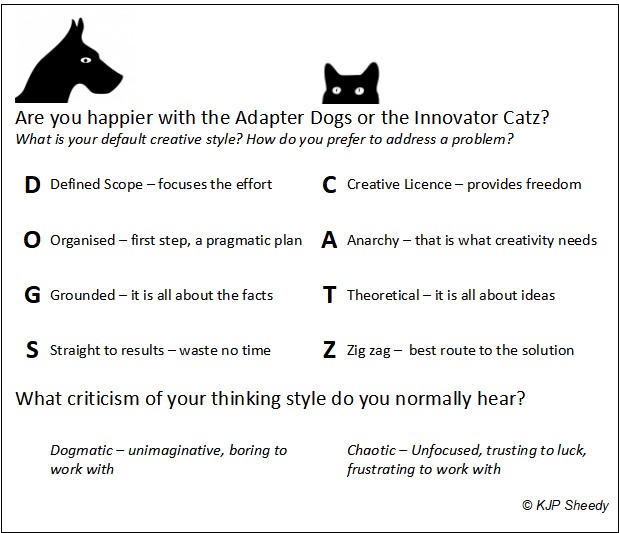I would like to talk to you about thinking. … and a little bit about cooking. And then I will ask you to help me to get more good thinking happening in the world. We all have built-in thinking patterns, or paradigms, which we use every day. They work really well because they have evolved over millennia. We develop and refine these amazing skills by using them, and by engaging with other people who are using them.
It is no coincidence that is the same way that most people learn basic cooking skills. Hanging about in the kitchen while grownups are cooking means that you pick stuff up. One day you have to cook yourself and you discover you can, more or less, boil and egg. But some people take a closer interest in cooking. They begin to read recipe books, picking up some tricks of the trade. They may even take a cookery course or two. Some people go on to become Le Cordon Bleu chefs. Imagine if everybody learned how to cook, there would be a lot more good food about.
Now imagine if everybody invested time in consciously learning about how they think. Reading a few books, swapping tips and tricks with other thinkers. There would be a lot more good thinking in the world.
I believe that people who are taught how to think are very likely to be better people, with more empathy and better capabilities in just about everything they do. They are aware of the tricks that their minds can play, and of the tricks that can be played on them. Therefore they are less likely to be taken in by the misguided or the mischievous. It is a virtuous circle. Thinking about thinking makes you better at thinking, and so on.
This is the reason that I have spent the last two years writing this book called "Good Thinking, and Bad: Using the Science of Cognition to Make Better Decisions." It takes the best cognitive science insights from the best thinkers of the last few decades and makes them easy to understand. It presents the information as a set of easy to use tools, so that readers can apply them every day. It is designed as a ready reference handbook for better thinking. It also strongly encourages people to teach the insights they gain to others. This is why, for every twenty copies sold, I am committed to giving a free copy to any School Library that requests one.
SAMPLE EXERCISE:
Wouldn’t it be great if people understood, and could compare, what their default creative styles are? Do they tend to stick with the Adapter Dogs or prefer the Innovator Catz? Innovators get all the good press, but Adapters are true creatives too; it is just a different style of creativity and sometimes it is a much more useful style. This tool, based on the Kirton Adapter Innovator (KAI) model, is one of those featured in the book:

For example, Norman Borlaugh, the father of the green revolution, received a Nobel Peace Prize in 1970 for saving a billion people from starvation. He took the technology and techniques that were being used on existing hybrids and pushed them to deliver more: he showed that two harvests a year were possible with a small tweak to the existing wheat varieties, rather than suggest changing to a totally new crop or food source. By the above definition, he was an Adapter. By comparison, Steve Jobs transformed the way music was consumed with the iPod. Rather than continue to refine that innovative product, he destroyed it by transforming the way the mobile phone was used. This was certainly an Innovator who changed the world.
We, the Fellows of the RSA, are here to promote 21st Century Enlightenment. One of our core ambitions as Fellows is to promote Creative Learning and Development. I am running a Kickstarter campaign to translate the book from English into Spanish and Chinese, in the aim to reach 1.5bn people around the world. If you believe in getting more people to think about thinking, get involved!
Thank you!

Be the first to write a comment
Comments
Please login to post a comment or reply
Don't have an account? Click here to register.